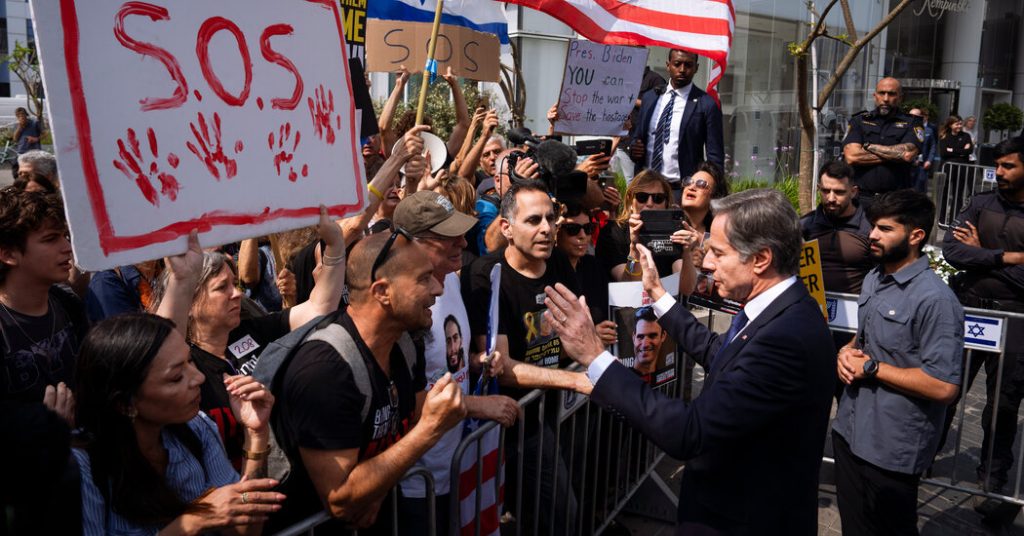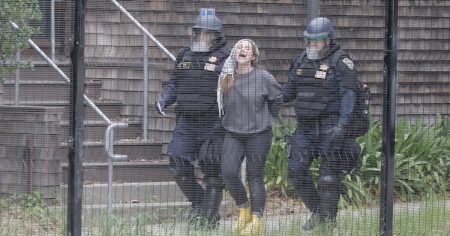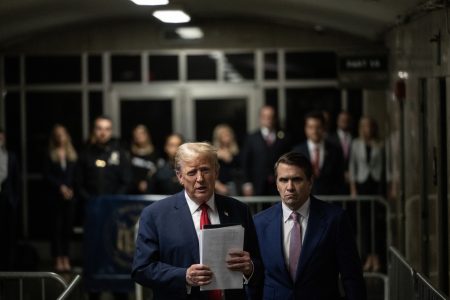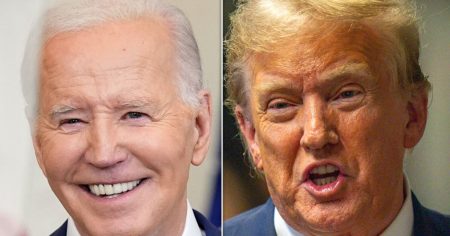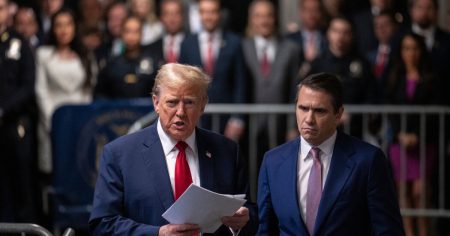Secretary of State Antony J. Blinken concluded his Mideast trip by meeting with Israeli president and families of American hostages held by Hamas. He expressed empathy with protesters and announced a hostages-for-cease-fire deal on the table for Hamas. Israeli Prime Minister Benjamin Netanyahu has focused on a possible ground offensive in Rafah despite U.S. officials urging against it, stressing a more strategic approach.
The U.S.-Israeli diplomatic efforts have seemingly drifted apart as President Biden envisions hostage releases leading to a temporary cease-fire and Arab nations participating in reconstruction. Although Israel showed flexibility on the terms, Netanyahu opposes a permanent cease-fire, vowing to eradicate Hamas in Rafah. U.S. officials prefer precise operations against Hamas leaders over a full-scale assault in Rafah.
President Biden faces domestic pressure over his unwavering support for Israel during the conflict, which could fracture his liberal voting coalition. Along with defending Israel against pro-Palestinian resolutions in the United Nations, the U.S. must also deflect criticism from Arab partners and governments. The conflict may impact American efforts against Russia and China, particularly in the global south nations.
Secretary Blinken focused on hostage release discussions and humanitarian aid planning during his Middle East tour. Israel protesters gathered outside his hotel hoping that American intervention will resolve the crisis, which started with Hamas attacks and Israeli retaliation resulting in casualties. However, the political solution to the Israeli-Palestinian conflict remains a point of contention between the U.S. and Israel.
Netanyahu is under pressure from both the Biden administration and the far-right members of his coalition. While the hard-right ministers push for a Rafah operation, the centrists in the government insist on decisions based on national interest rather than politics. The Israeli public is divided on the outcome they desire, with some supporting an initial deal for vulnerable hostages and others backing a comprehensive resolution to end the war.
Critics accuse Netanyahu of indecisiveness and suggest he may be influenced by Hamas leadership or far-right ministers in his government. The future of the conflict and Netanyahu’s political leadership depend on the outcome of the war, with the Prime Minister balancing the demands of various factions. As pressure mounts from both domestic and international sources, the path forward for Israel’s conflict with Hamas remains uncertain.





